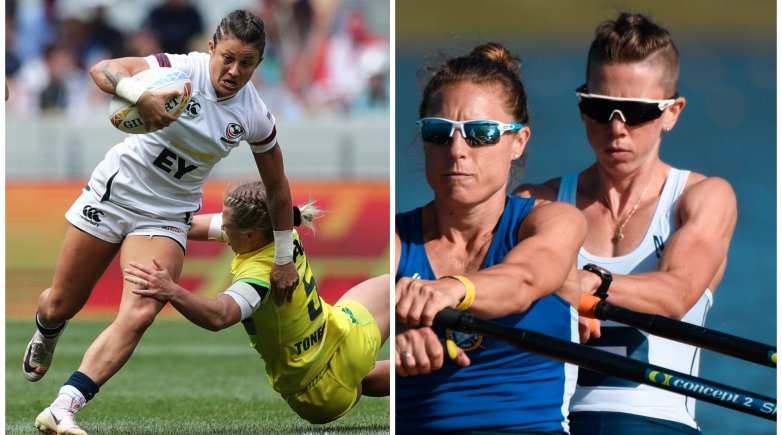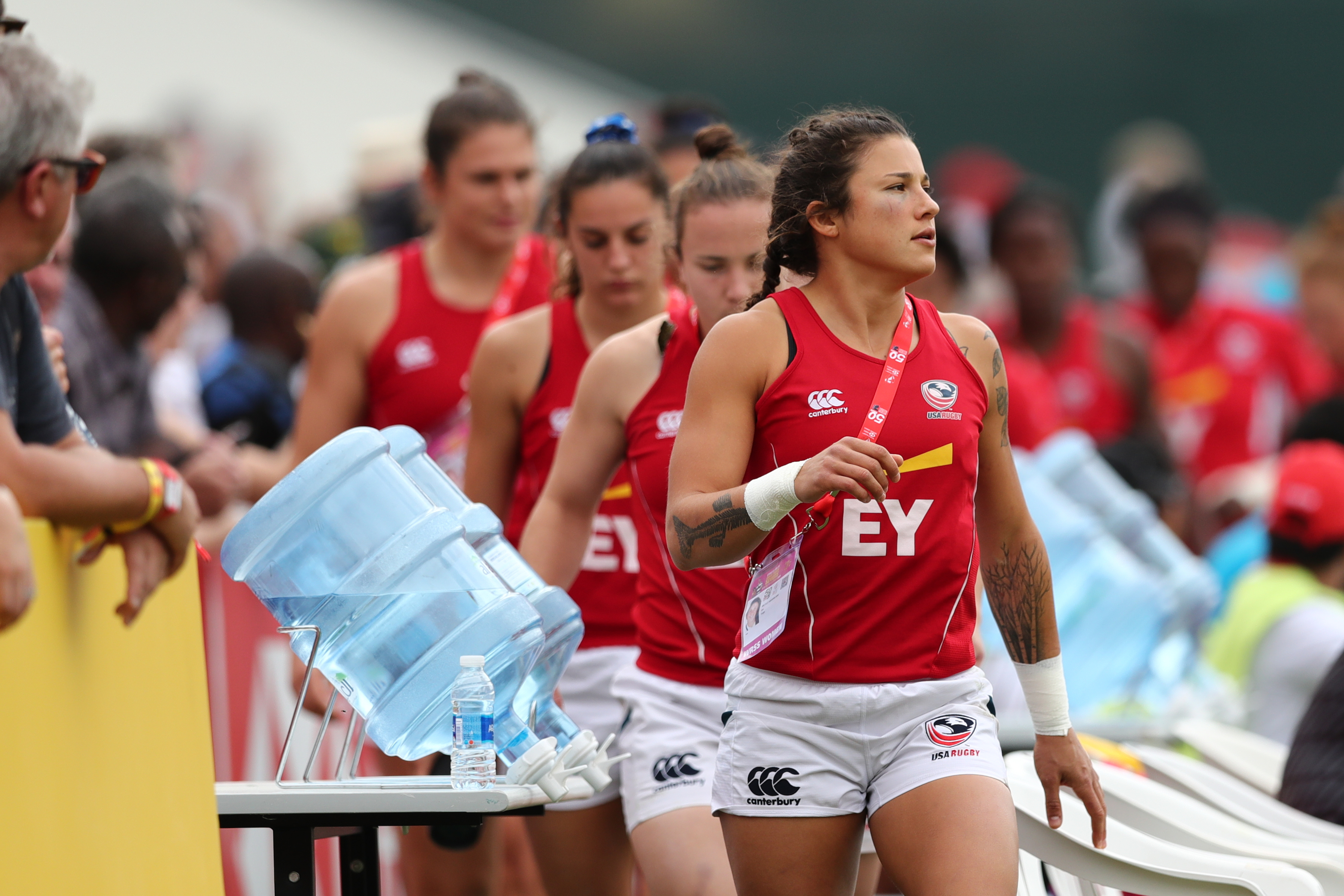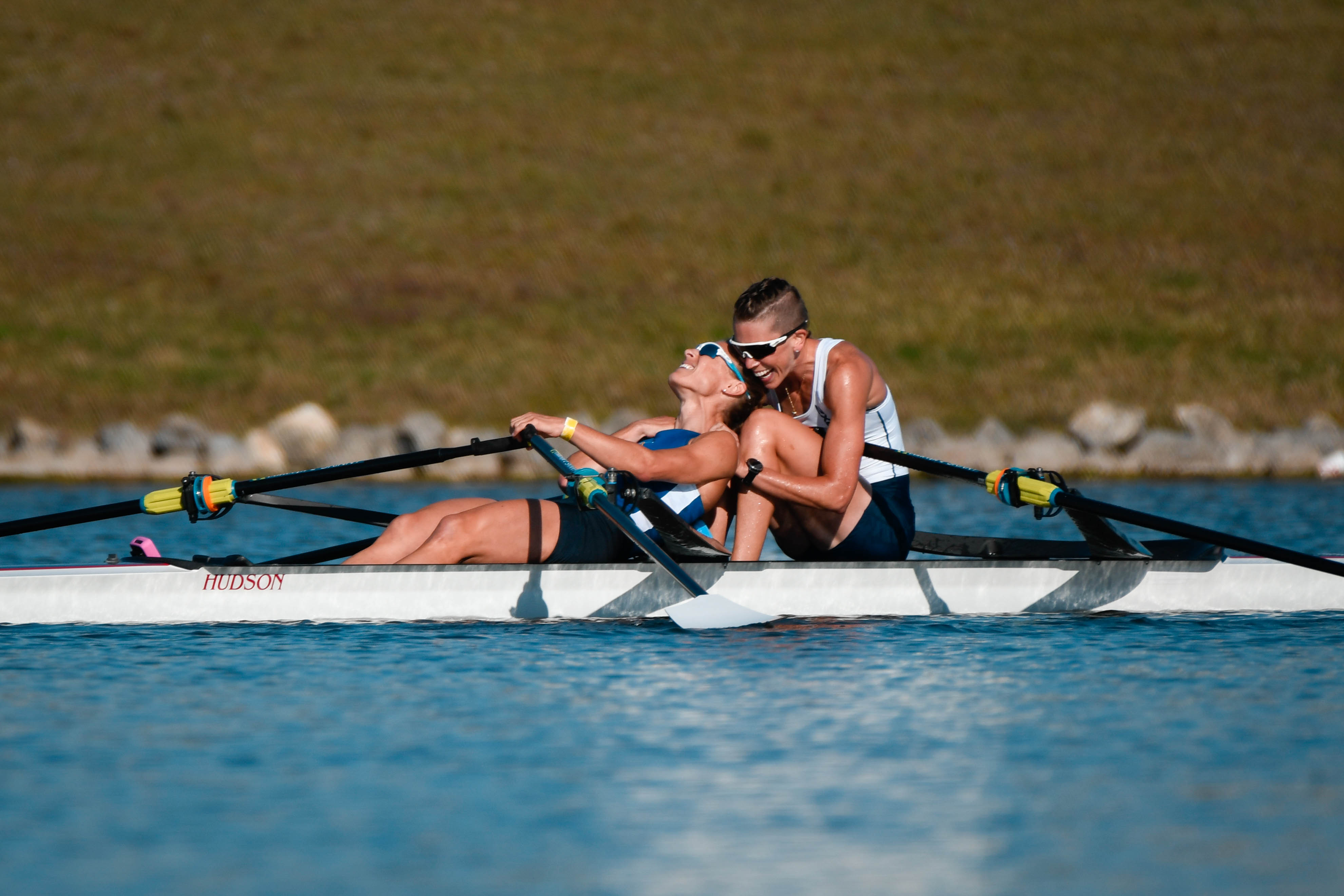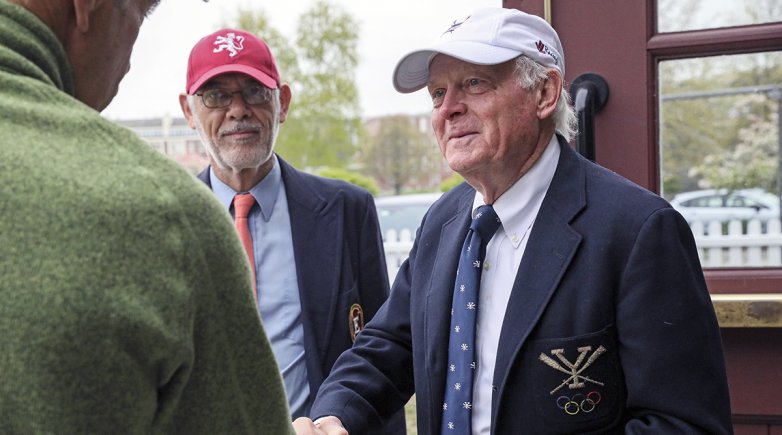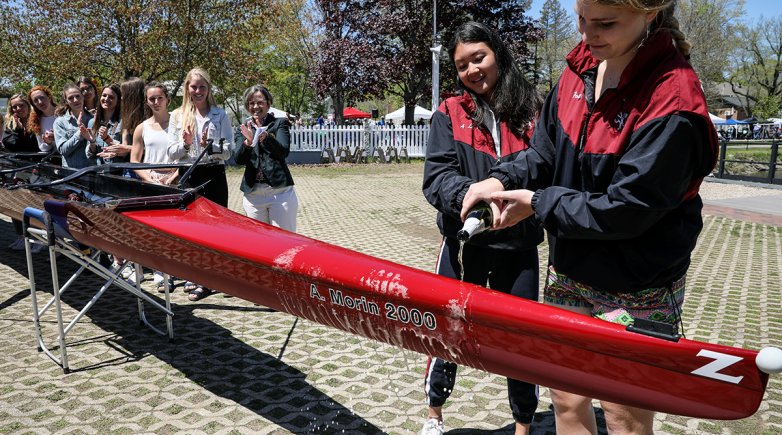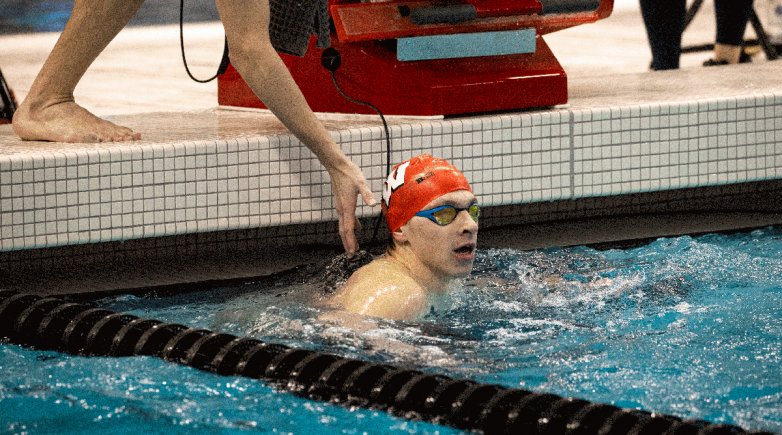Exonians prove their Olympic mettle
Molly Reckford ’11 and Nicole Heavirland ’14 took hard paths to reach the Tokyo Summer Games.
Nicole Heavirland '14 (left) and Molly Reckford '11 (far right with teammate Michelle Sechser) will represent the United States in the 2020 Tokyo Summer Olympics. (Photo credits: Mike Lee/KLC Fotos and U.S. Rowing)
The road to Tokyo is potholed. Molly Reckford ’11 and Nicole Heavirland ’14 can attest.
When the XXXII Summer Olympiad opens Friday, both Exonians will be in the red, white and blue of Team USA. Reckford is a rower in the bow seat of the women’s lightweight double sculls. Heavirland is the starting scrum-half of the American women’s rugby team.
Each blossomed in their respective sport beyond Exeter, and each slogged through adversity and doubt on their Olympic journey. Reckford went 2½ years without pulling an oar, fed up with what seemed like a one-sided love affair with rowing. Heavirland spent four years perpetually black and blue from rugby’s punishing nature, only to have her Olympic plug pulled by a global pandemic.
Ahead of the Tokyo Summer Games’ Opening Ceremonies, both athletes took time from their final preparations to talk about their paths — and to fondly reflect on their Academy days.
“I remember sitting in assembly and imagining ‘What would my assembly be? What would I talk about?’” Reckford says. “Exeter taught me to sit in the audience and think ‘What would I do if given the stage?’”
Most likely to succeed
Nicole Heavirland had hoop dreams as a kid. She is a sports Swiss Army knife from Whitefish, Montana, who calls basketball her first love. She was on a mission to play in college by the time she came to Exeter for 11th grade in the fall of 2012. Her wake-up routine was to go to Love Gym before dawn and make 100 baskets before breakfast. “I became close with the janitor, because he was the one letting me in,” she says.
Heavirland helped coach Johnny Griffith, now Exeter’s dean of student health and wellness, turn a Big Red program that lost 14 games the season before she arrived into a league champion two years later. “I could have won at the Class A level every year if I'd had four or five of her,” Griffith says. Her classmates voted her “Most Athletic” and — prophetically — “Most Likely to Go to the Olympics.” (She was runner-up for “Most Likely to be on the Cover of Sports Illustrated”).
